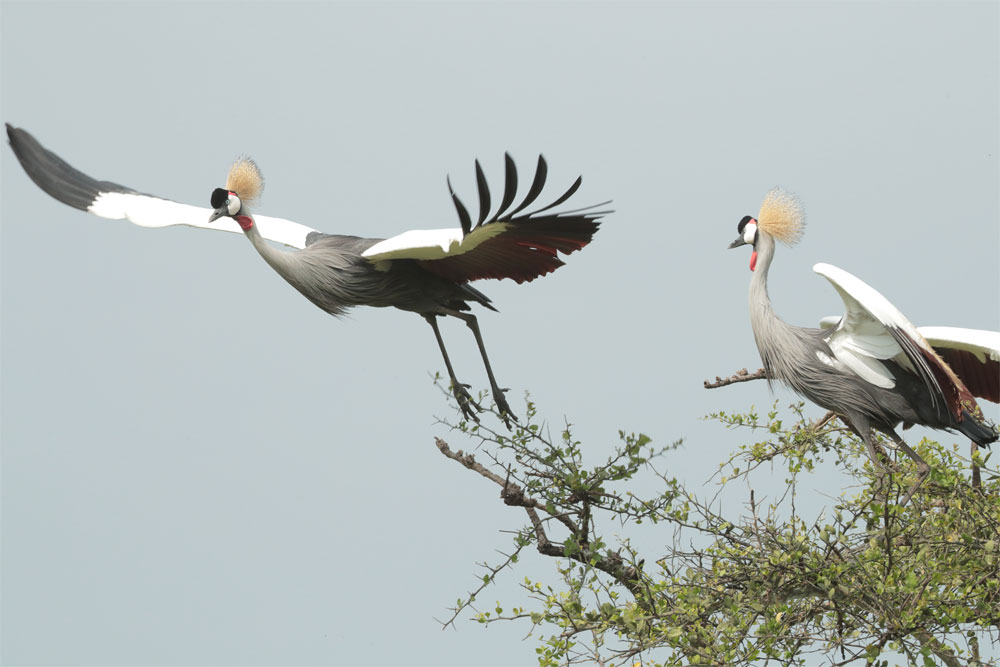- Tales by Light Photographers Road-Test the 1D X Mark II
-

Acclaimed wildlife photographers Jonathan and Angela Scott live in Kenya, splitting their time between the nation’s capital, Nairobi, and the richly textured Maasai Mara. Here, in their own words, they reveal the top-three ways the Canon 1D X Mark II impressed them, and why they think it's a must-have camera for any passionate wildlife photographer.
Incredible ISO capabilities
“The Maasai people are just wonderful to take pictures of. When you arrive in a traditional ‘manyata’ hut they embrace you - it's a privilege. We had a truly fantastic morning with them and enjoyed great light and lots of action. But our challenge was to test the camera in a very different circumstance - inside a dark hut,” says Angela.
"We normally shoot up to ISO 2000 but, in this environment, we took it from 10,000 right up to 50,000."
“It just pulls the light in—it's extraordinary. The sharpness is incredible. We were basically shooting in the dark relying on the red light focus point but, when pressing the button fully, we delivered an image when we couldn’t even see what we’re doing. It was incredible,” Angela explains.
Breath-taking shutter-speed
“We came across a great opportunity to try two things—high ISO and a high frame rate—when a flock of crowned cranes decided to fly off from a tree. We'd had some rain and there was no light out but this made the photos perfect,” describes Jonathan. “When we got the pictures back they revealed things that we didn’t even notice at the time we took the pictures. It is truly unbelievable.”

"People ask if 14 frames per second are necessary: for a wildlife photographer—absolutely."
“That perfect moment will happen in the blink of an eye. You wouldn’t even see it. This feature was also perfect during golden-hour when the lovely golden light picked up on the red oak grass and the tips of the lioness’s ears. It was magic. With this camera, we can enjoy taking images of cubs, knowing we’ll get a beautifully sharp shot,” reveals Jonathan.
Handy built-in GPS
“A fantastic feature in the 1D X Mark II is the built-in GPS. We can keep track of where we last saw wildlife, and where we took pictures thanks to the saved coordinates,” says Jonathan. “If, for instance, we see a leopard in an area that we’re not that familiar with, we can go right back to that location the next morning.”
“We were so thrilled to capture a mother leopard with her cubs in the same frame for the very first time. And as we mentioned, with this camera you can bump the ISO up without seeing the noise. For the image above, we had the ISO up at 2,500 and an f-stop of 11. Both for the mother and her cubs, the eyes are just extraordinarily pin-sharp,” explains Jonathan.
What every photographer wants
“We’re so impressed with what this camera allows us to do. For us, it’ll continue to deliver the unique smells and sounds of Africa,” describes Angela.
"The Canon 1D X Mark II allows us to be free of the technicalities and the mechanics of taking an image."
“It will help any photographer to be as creative as they can be. And for us, it’s not just capturing the glory of the African savannah, it’s something more than that. It's unveiling the stories and the heartbeat of Africa in the most incredible way possible,” Jonathan explains.
Read more about the 1D X Mark II here.

Elaine shares her favourite photography locations in Helsinki and Lapland. From snow-white fields to ethereal pine forests, Finland sure has a lot to offer.

Behind every powerful image, is a powerful story. In this new three-part documentary series, go behind the lens with Angela and Johnathan Scott from Big Cat Diary, underwater photographer and publisher of WetPixel Eric Cheng, and war photographer Stephen Dupont.

Behind every powerful image, is a powerful story. In this new three-part documentary series, go behind the lens with Angela and Johnathan Scott from Big Cat Diary, underwater photographer and publisher of WetPixel Eric Cheng, and war photographer Stephen Dupont.